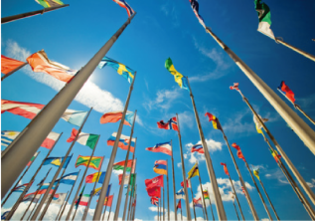News| Friday, 24 January 2014
The UN Secretary-General’s Scientific Advisory Board to have its first meeting

UN Secretary-General Ban Ki Moon’s new advisory committee consisting of a panel of international experts will hold its first working session next week in Berlin. The Scientific Advisory Board will advise the Secretary-General in matters of science, research and technology. Included among the 26 members from various scientific disciplines is the microbiologist Professor Jörg Hacker, the President of the German National Academy of Sciences Leopoldina which has its headquarters in Halle (Saale). The constituent meeting of the UN Secretary-General’s Scientific Advisory Board will begin with an inauguration ceremony at the Federal Foreign Office in Berlin on Thursday, 30 January.
The UN Secretary-General’s Scientific Advisory Board’The UN Secretary-General’s Scientific Advisory Board’s first working meeting will be held in Berlin on Thursday, 30 January and Friday, 31 January at the invitation of the German Federal Government. UN Secretary-General Ban Ki Moon and UNESCO Director-General Irina Bokova will also participate in the proceedings. Research and development will be on the scientists´ agenda. Social and ethical dimensions will also be prominent in their deliberations, including the question how the world’s least developed countries can benefit from scientific advances to a greater extent than they do now.
“The UN Secretary-General’s Advisory Board addresses immensely important issues regarding the sustainable development of the world’s populations and in doing so broadens the areas of cooperation between science and politics,” says Prof. Jörg Hacker. "I am really looking forward to taking up the challenge of participating in the work of this committee,” adds Hacker.
This Scientific Advisory Board was created to strengthen the connections between science and politics and to make recommendations regarding research priorities. Members will provide advice on contemporary issues to the UN Secretary-General and the heads of other UN organizations as well as identify current knowledge gaps and research needs. The leadership and management of the committee were assigned to UNESCO. The members of the board serve in a personal capacity for an initial period of two years.
